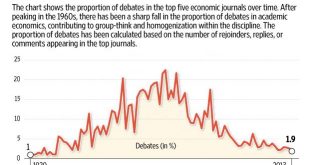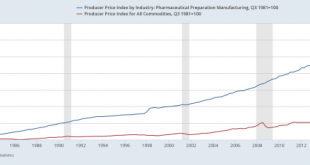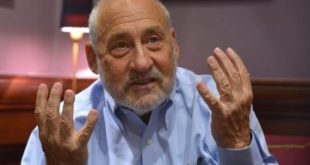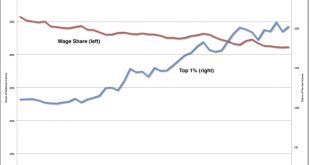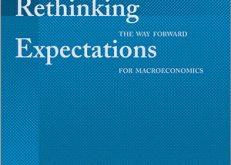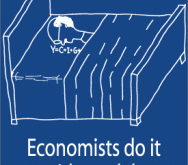from The seven sins of economists
Read More »“Profits above morals and humanity”
from David Ruccio Back in June, Kim Hemphill, in her letter to the editor of the Washington Post, challenged pharmaceutical industry claims that it must charge high prices on lifesaving drugs to recover research and development costs. The case detailed in the June 11 Business article “Max’s best hope costs $750,000” was yet another example of how the pharmaceutical industry continues to put profits above morals and humanity. . . Research and development costs are a part of the business...
Read More »Where modern macroeconomics went wrong
from Lars Syll DSGE models seem to take it as a religious tenet that consumption should be explained by a model of a representative agent maximizing his utility over an infinite lifetime without borrowing constraints. Doing so is called micro-foundingthe model. But economics is a behavioral science. If Keynes was right that individuals saved a constant fraction of their income, an aggregate model based on that assumption is micro-founded.Of course, the economy consists of individuals who...
Read More »Adults in the room: The sordid tale of Greece’s battle against austerity and the Troika
from Dean Baker Yanis Varoufakis begins his account of his half year as Greece’s finance minister in the left populist Syriza government (Adults in the Room, Farrar, Straus, and Giroux) with a description of a meeting with Larry Summers. According to Varoufakis, Summers explains that there are two types of politicians. There are those who are on the inside and play by the rules. They can just occasionally accomplish things by persuading others in the room to take their advice. Then there...
Read More »How do you like them facts?
from David Ruccio Apologists for mainstream economics (such as Noah Smith) like to claim that things are OK because good empirical research is crowding out bad theory. I have no doubt about the fact that the theory of mainstream economics has been bad. But is the empirical research any better? Not, as I see it, in the academy, in the departments that are dominated by mainstream economics. But there is interesting empirical work going on elsewhere, including of all places in the...
Read More »Rethinking expectations
from Lars Syll The tiny little problem that there is no hard empirical evidence that verifies rational expectations models doesn’t usually bother its protagonists too much. Rational expectations überpriest Thomas Sargent has defended the epistemological status of the rational expectations hypothesis arguing that since it “focuses on outcomes and does not pretend to have behavioral content,” it has proved to be “a powerful tool for making precise statements.” Precise, yes, but relevant and...
Read More »Welfare for Wall Street: fees on retirement accounts
from Dean Baker Most of us are willing to help out those who are less well off. Whether it comes from religious belief or a sense of basic decency we feel are an obligation to provide the basic necessities of life for the poor. But how would we feel about being taxed $1,000 a year to provide six figure salaries to people in the financial sector? Although no candidate to my knowledge has ever run on this platform, this is the nature of the retirement system the federal government has...
Read More »Economics and the new history of capitalism
from David Ruccio As I tell my students, nothing gets a mainstream economist frothing at the mouth quite like mentioning Karl Polanyi. Or at least it used to, when mainstream economists actually knew who Polanyi was and grasped—however dismissively—what he wrote about the history of capitalism. To his credit, Eric Hilt (pdf) appears to know something about the author of The Great Transformation and how his work influenced the new history of capitalism. And his review of ten recent books,...
Read More »Going rogue: economic practice and hitting the orthodox wall
from Andrew Vonnegut and WEA Commentaries My work over almost 20 years would have pegged me as a pretty mainstream economist. I worked in company and market due diligence and risk analysis in emerging markets finance, then for two large international consulting firms in emerging markets policy advisory. A regular, mainstream, practicing economist. Then I returned to the United States, started teaching a global economics class, and looked for a text. Like my texts 25 years ago, materials...
Read More »What makes economics a science?
from Lars Syll Well, if we are to believe most mainstream economists, models are what make economics a science. In a recent Journal of Economic Literature(1/2017) review of Dani Rodrik’s Economics Rules, renowned game theorist Ariel Rubinstein discusses Rodrik’s justifications for the view that “models make economics a science.” Although Rubinstein has some doubts about those justifications — models are not indispensable for telling good stories or clarifying things in general; logical...
Read More » Real-World Economics Review
Real-World Economics Review

